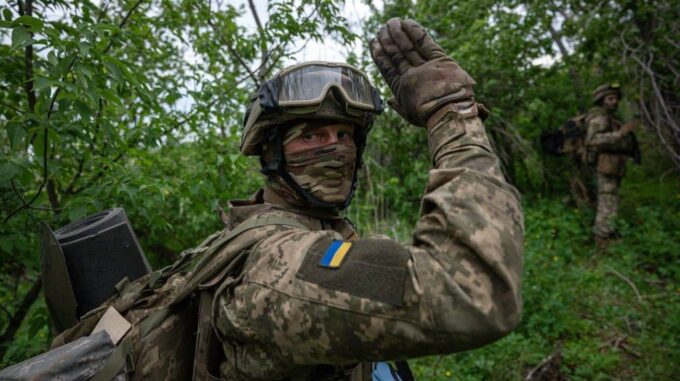Russian troops are intensifying their aggressive actions on the Siverskyi front and have been deploying prohibited chemical weapons for the third consecutive week, raising increasing concerns among Ukrainian defenders and the international community

This information is reported by various military and analytical sources, emphasizing that the situation in this region is showing new signs of escalation and dangerous developments. According to representatives of the "Rubizh" Brigade of the National Guard of Ukraine, the situation on the front in this part of the country is becoming increasingly tense and unpredictable. The enemy, according to their reports, has intensified assault operations, aiming to break through Ukrainian defenses with small, mobile groups. The daily number of artillery shellings in this sector reaches approximately two hundred, representing a significant increase compared to previous weeks. This not only indicates the occupiers' focus on holding their positions but may also suggest plans to initiate a wide-ground operation that would have strategic significance for Russian forces in this region. Of particular concern is the use of chemical weapons. For the third week, Ukrainian defenders have been recording cases of the Russian military employing banned munitions that release toxic substances capable of spreading instantly at defensive positions. Soldiers report that such munitions contain substances that quickly disperse through trenches, bunkers, and lowlands, causing serious health injuries and creating additional life-threatening dangers for service members. Military experts state that these chemical attacks are especially dangerous due to their rapid dissemination and ability to cover large territories in a short period. Meanwhile, experts and diplomatic circles are paying attention to Russia’s history of deploying chemical weapons in this conflict. In May of this year, the European Union imposed sanctions on three Russian agencies accused of developing and using banned substances. International organizations, including the Organisation for the Prohibition of Chemical Weapons (OPCW), have already documented incidents of the use of the prohibited chemical agent CS in the conflict zone — this reportedly happened in November 2024. Ukraine’s Ministry of Defense and General Staff insist that Russia systematically employs dangerous chemical munitions in its tactics, combining them with conventional military equipment. This was confirmed by General Staff spokesperson Captain Dmytro Likhovoy, who stated that Russian forces are not only using conventional artillery and missile systems but also armed with dangerous chemical ammunition of a prohibited type. This adds a new level of threat for Ukrainian defenders, as the use of chemical weapons is banned by international treaties and considered one of the most prohibited and immoral forms of warfare. The international community is already reacting to these threats. The European Union and the United States call for stricter sanctions and increased monitoring of compliance with international rules, while Ukrainian troops are preparing for the worst-case scenarios. At the same time, Ukraine urges the international community to strengthen diplomatic efforts and take measures to halt the use of chemical weapons, which could have tragic consequences for the civilian population. Overall, the situation on the Siverskyi front is causing growing concern. Russian forces are not only attempting to breach the Ukrainian front but are also deploying banned weapons, creating additional challenges for Ukraine’s defenders and highlighting the high level of aggression and irresponsibility of the aggressor country. Military and international experts note that this stage of the conflict requires intensified international response and collective efforts to contain escalation and prevent a humanitarian catastrophe.

